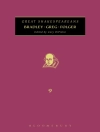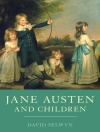A team of leading contributors from both philosophical and literary backgrounds have been brought together in this impressive book to examine how works of literary fiction can be a source of knowledge. Together, they analyze the important trends in this current popular debate.
The innovative feature of this volume is that it mixes work by literary theorists and scholars with work of analytic philosophers that combined together provide a comprehensive statement of the variety of ways in which works of fiction can engage questions of worldly interest. It uses the problem of cognitive value to explore:
- literature’s contribution to ethical life
- literature’s ability to engage in social and political critique
- the role narrative plays in opening up possibilities of moral, aesthetic, experience and selfhood
This remarkable volume will attract the attention of both literature and philosophy scholars with its statement of the various ways that literature and life take an interest in one another.












